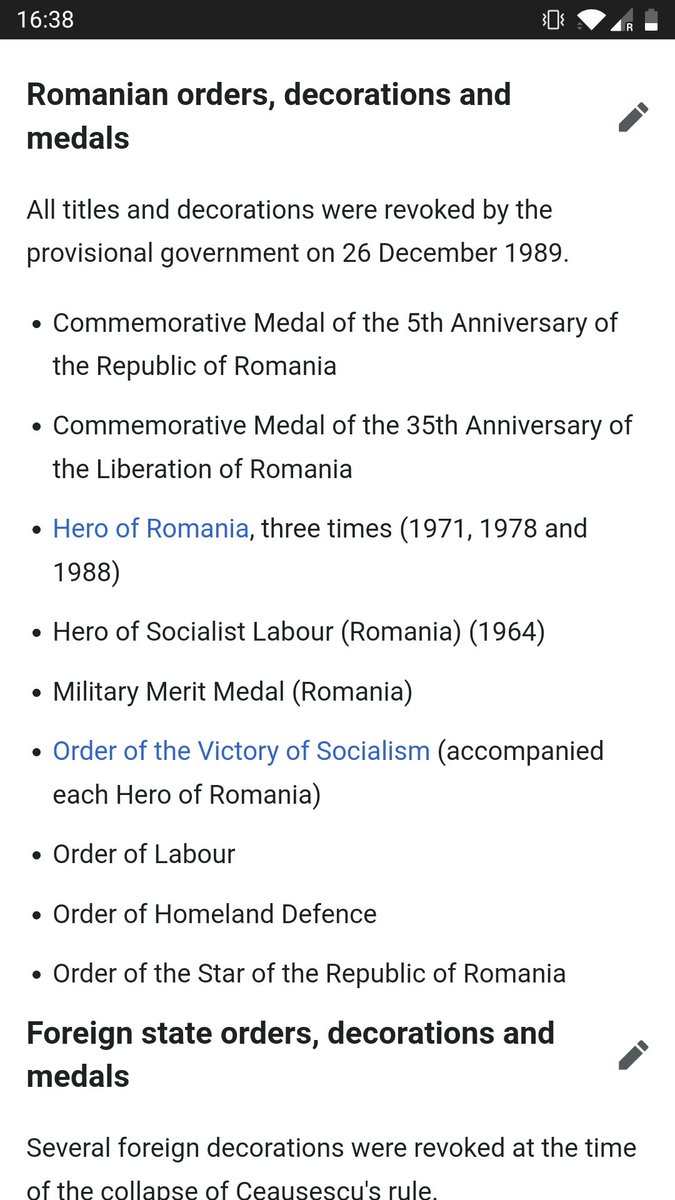The languages used in 🇪🇺 @EU_Commission President’s annual State of the European Union speeches 💬 #SOTEU
A thread 🧵 1/
A thread 🧵 1/
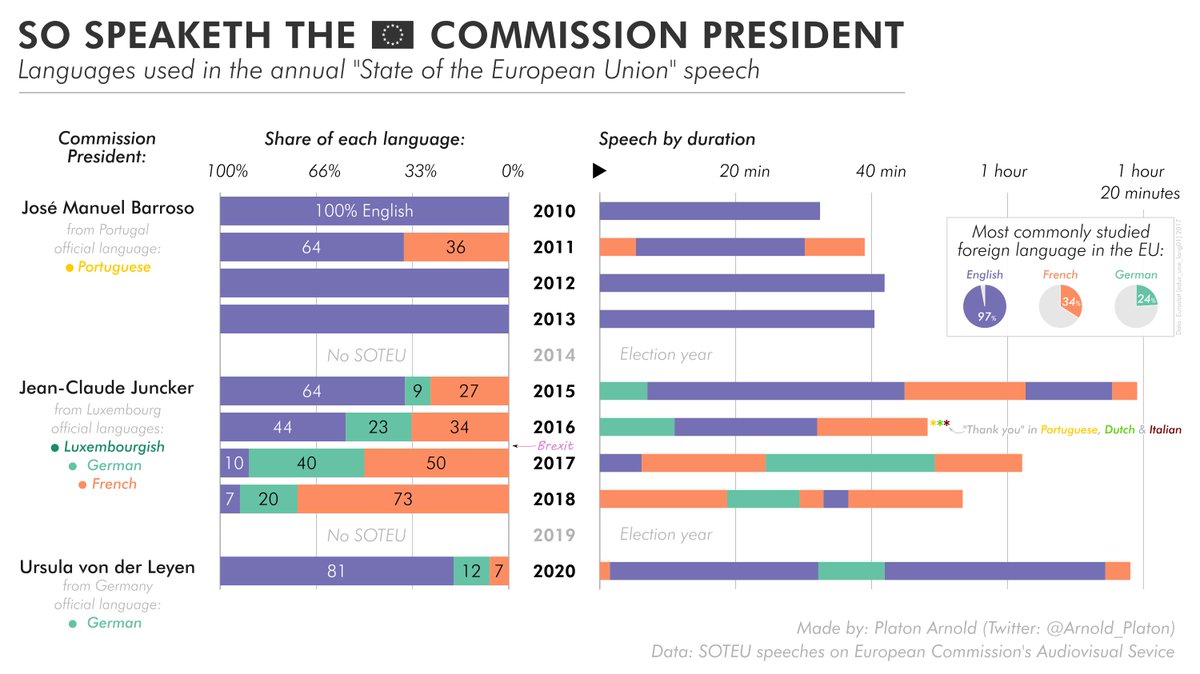
Wednesday, @POLITICOEurope published and interesting article on the languages used by @vonderleyen in her first #SOTEU2020 speech. In it they made a surprising claim: that UvdL had abandoned his predecessor’s balanced use of English, French and German. 2/
https://twitter.com/POLITICOEurope/status/1307052775746842624
Out of skepticism and curiosity I went through all the #SOTEU speeches (on @europarlAV ) to see how the 🇪🇺 EU’s three working languages were employed.
I used timeshare of each language because original transcripts for these speeches do not exist.
So here is what I found:
3/
I used timeshare of each language because original transcripts for these speeches do not exist.
So here is what I found:
3/
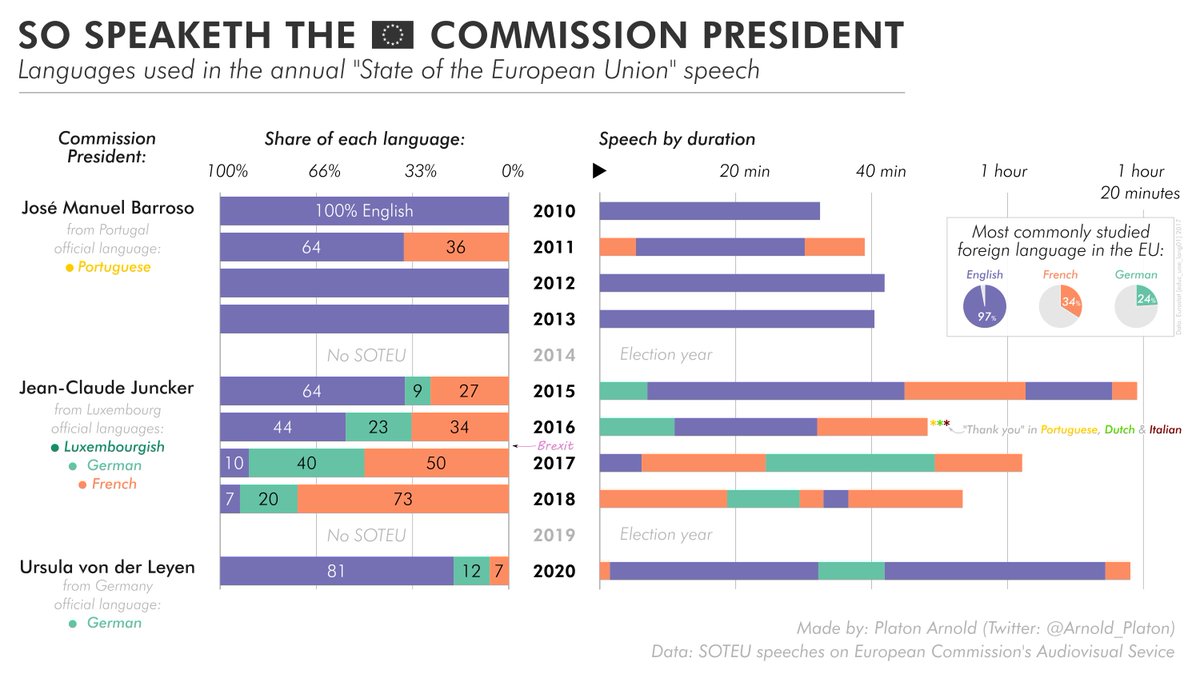
The person who came up with the State of the European Union speech, Commission president José Manuel Barroso had zero consideration for any balance.
German was never used, and French was only used in 2011, for one third of the speech.
Not a word of his native Portuguese. 4/
German was never used, and French was only used in 2011, for one third of the speech.
Not a word of his native Portuguese. 4/
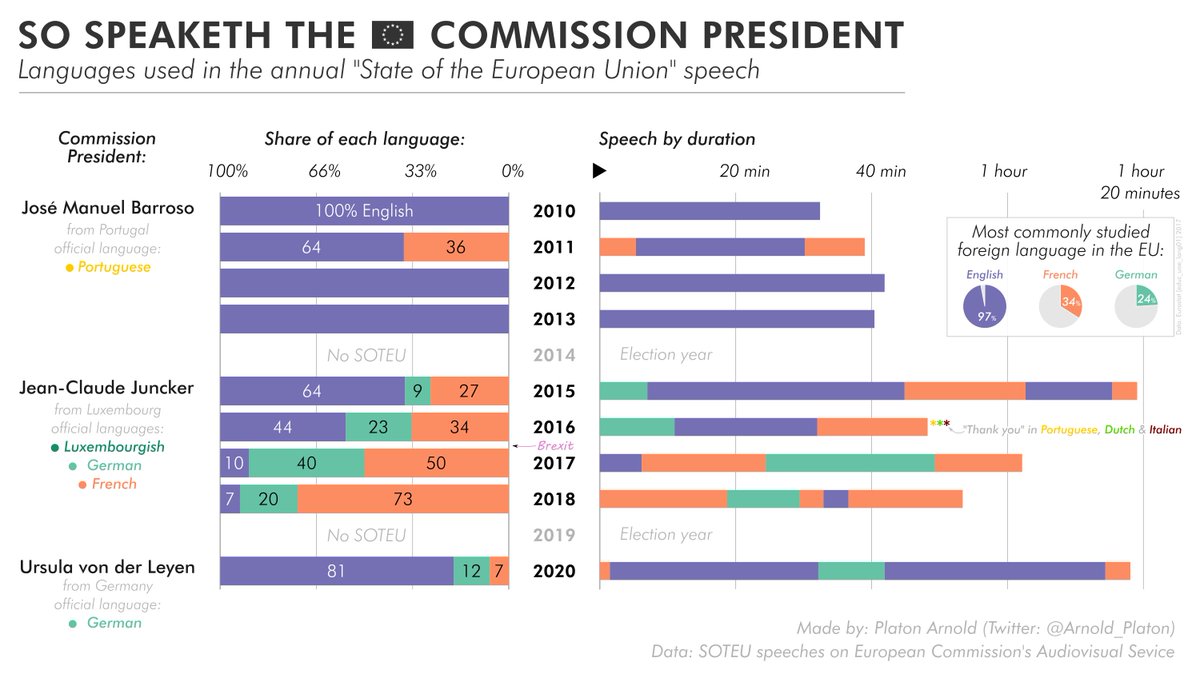
Jean-Claude Juncker was the first to use all three languages, and even employed a bit of Portuguese, Dutch and Italian at the end of his 2016 speech. But he had no “balance”, and the proportion and use within the speech of each language varies from one year to another. 5/ 
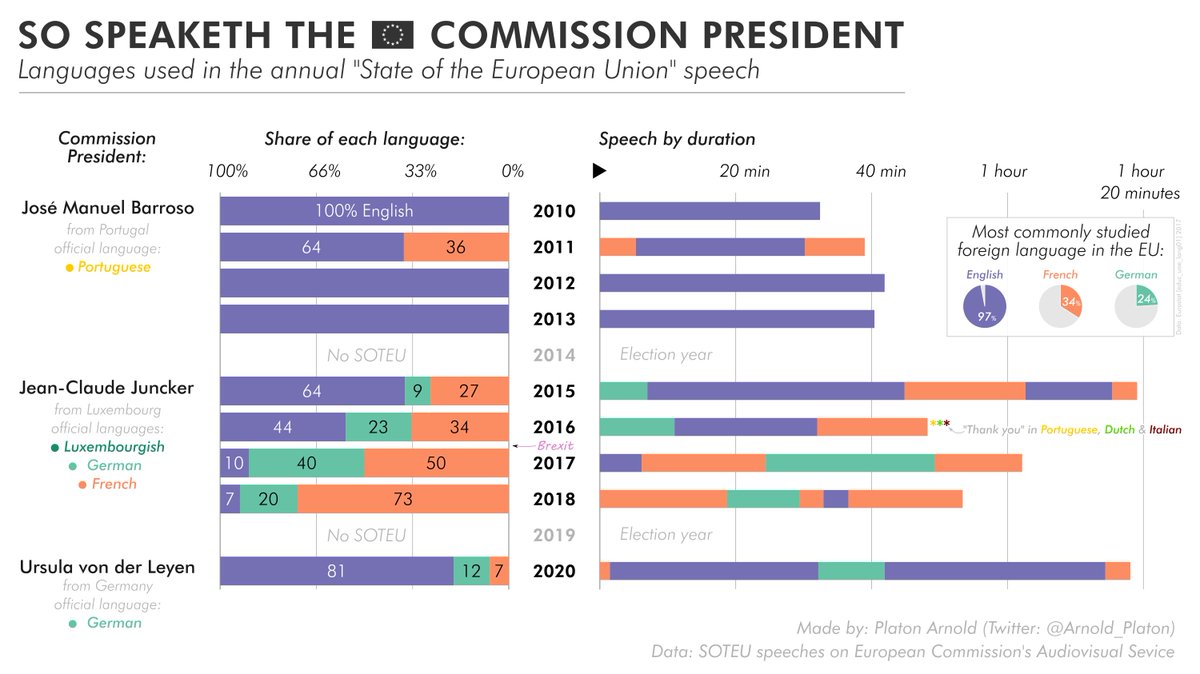
There is a notable decline 📉 of English after Brexit, it's true, and an uptick 📈 of French, but the picture is a volatile one. German peaks in 2017 at 40%, while French peaks in 2018 at 73%.
Against this backdrop, UvdL’s meager 7% French looks bad, catastrophic even, but… 6/
Against this backdrop, UvdL’s meager 7% French looks bad, catastrophic even, but… 6/
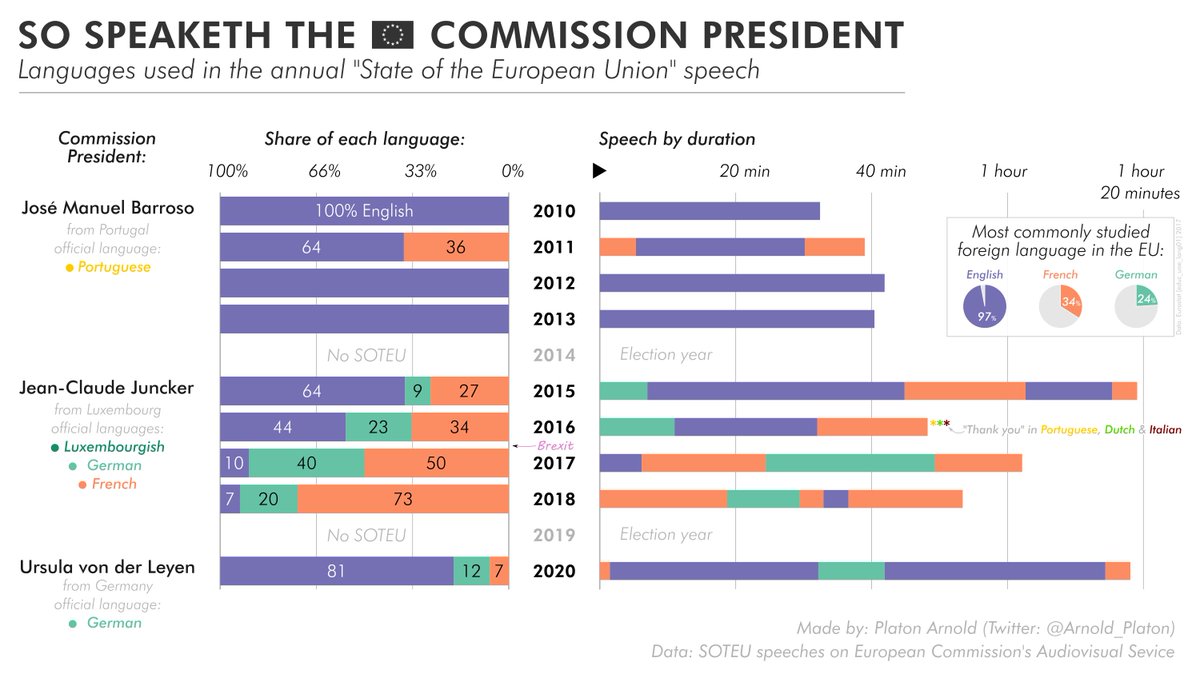
It’s worth noting that both French and German are official in Luxembourg, and thus “native” to @JunckerEU , while French is a foreign language to UvdL, just like English.
The difference here being that English is by far the most studied and used lingua franca in Europe. 7/
The difference here being that English is by far the most studied and used lingua franca in Europe. 7/
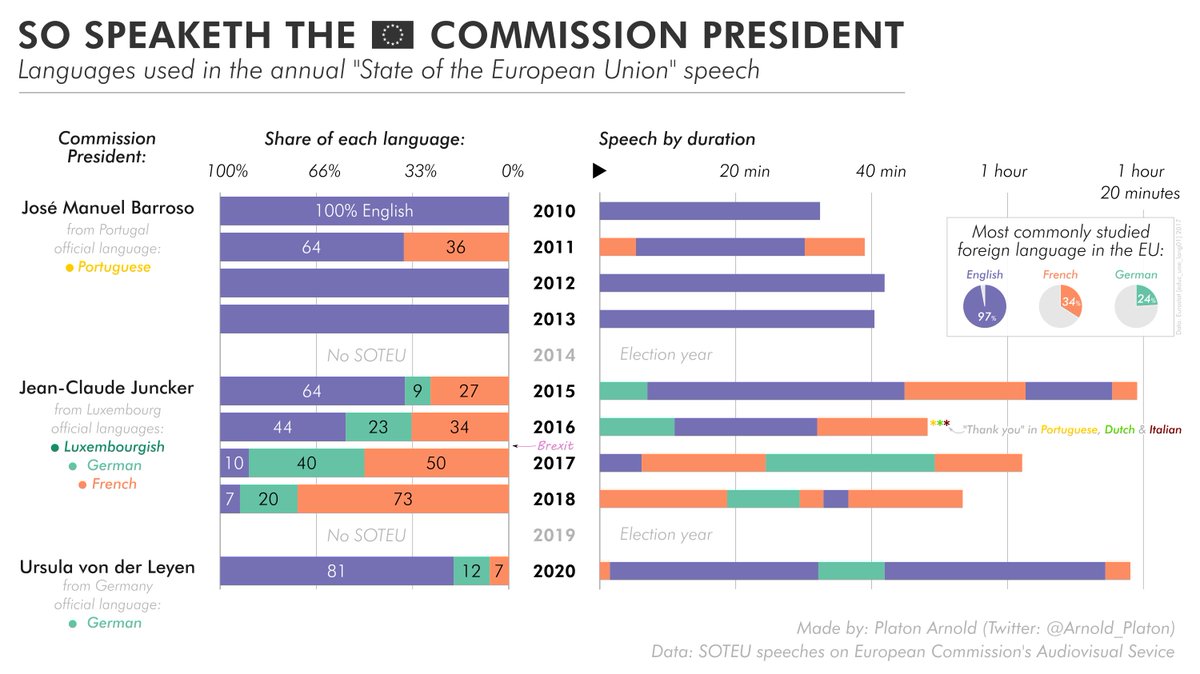
I think, looking at the charts, that each Commission president has a different style in their language use, influenced by their education, their native language, and their vision of how they should communicate with the European public.
Some are better at #SOTEU than others.
8/
Some are better at #SOTEU than others.
8/
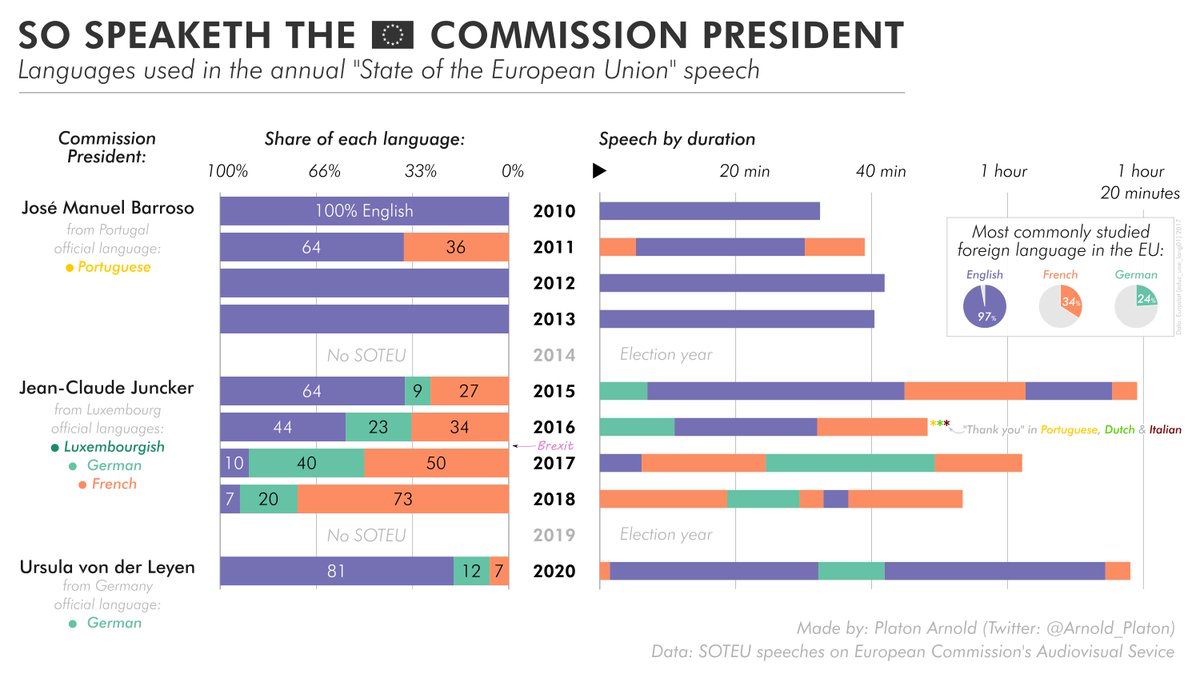
Now that Brexit is done and ~60 milion English speakers are no longer EU citizens, some Anglophiles fear, and some Francophiles hope (😉 @quatremer), that the status of English will decline.
This, I fear is a misjudgment of the European linguistic landscape...
9/
This, I fear is a misjudgment of the European linguistic landscape...
9/
Two things of note:
No Commission president, as far as I can tell, has used even a word from a language of “New Europe” (i.e. a language of one of the Central and Eastern countries).
The best speech, imho, and most emotional one, is Juncker’s 2017 State of the Union
10/
No Commission president, as far as I can tell, has used even a word from a language of “New Europe” (i.e. a language of one of the Central and Eastern countries).
The best speech, imho, and most emotional one, is Juncker’s 2017 State of the Union
10/
And a final linguistic caveat:
I have no idea if Juncker used Luxembourgish in his speeches. I don’t speak German, so I can’t distinguish between the two. My intuition makes me lean towards “no Luxembourgish used” but I’m open to corrections.
11/
I have no idea if Juncker used Luxembourgish in his speeches. I don’t speak German, so I can’t distinguish between the two. My intuition makes me lean towards “no Luxembourgish used” but I’m open to corrections.
11/
• • •
Missing some Tweet in this thread? You can try to
force a refresh






